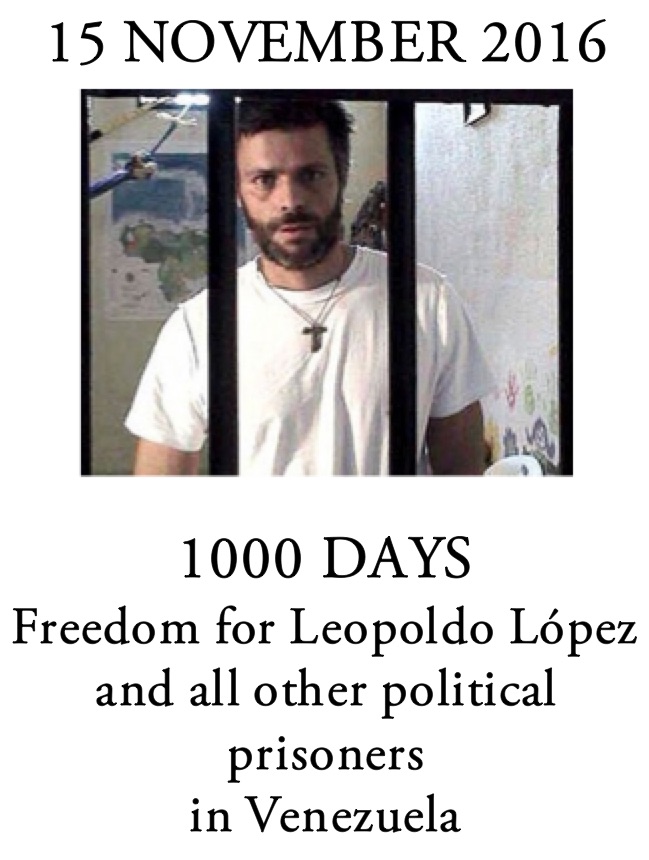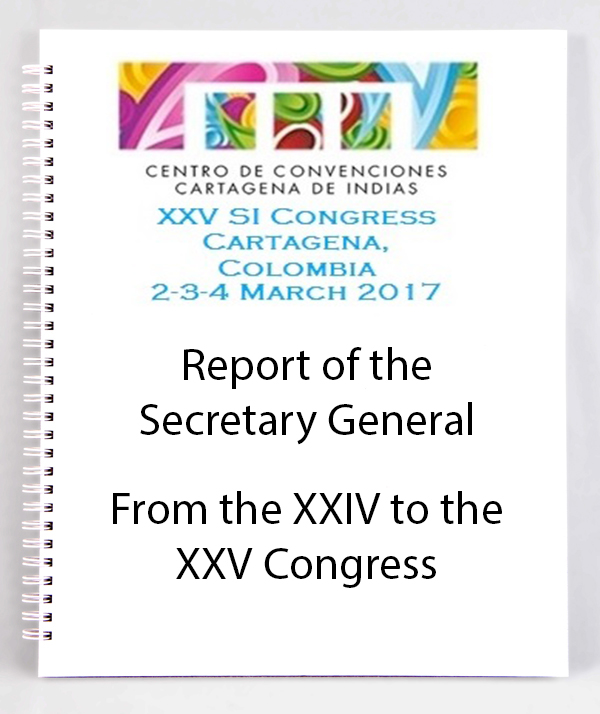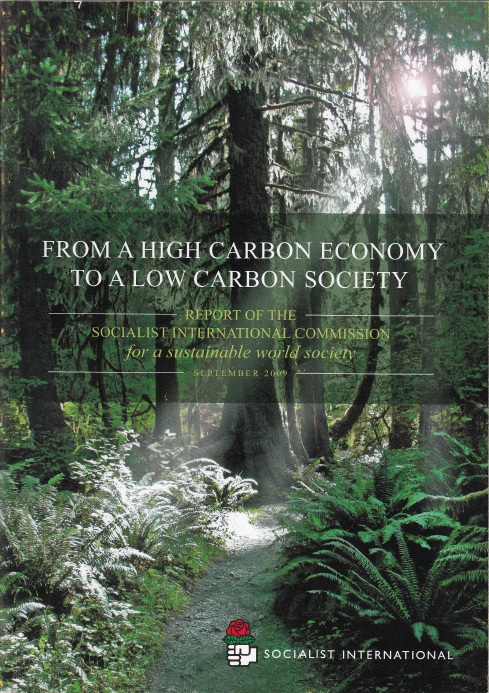SWS COMMISSION REPORT
23 September 2009
Click here to download PDF version
A. The creation of the Socialist International Commission for a Sustainable World Society
1.
The Socialist International Commission for a Sustainable World Society was created in accordance with decisions taken by the Council of the Socialist International at meetings in Santiago, Chile on 6-7 November 2006 and Geneva on 29-30 June 2007.
The Council underlined at these gatherings that momentous changes in the world in recent decades had increased opportunities to advance the cause of freedom, democracy, and human rights, but that much needed improvements in the architecture of global institutions required to overcome conflict and redress social divisions and inequality had not yet emerged.
At the same time, as conflicts were becoming more acute and new threats to security were arising, the world lacked the multilateral institutions to effectively tackle global warming and climate change.
The Council moved to establish the Commission for a Sustainable World Society to further a common social democratic vision and to address the new global environmental, political and social challenges of today.
The work of the Commission comes in the long tradition of the efforts of the Socialist International to promote and ensure equality, economic opportunity, social justice and sustainable development.
The International’s belief in an interdependent world and a common humanity, as well as its presence on every continent, make it a unique political platform of a global character capable of conceiving and carrying out a worldwide strategy for peace and global preservation.
The work of the Commission has focused on three priorities: a) to evaluate the threat of global warming and climate change and consider new global energy policies as fundamental to any response to that threat; b) to consider ways to redress social imbalances and economic inequality through new forms of governance; and c) to consider improvements in global governance as a foundation for building a sustainable world society overall.
2.
The Commission included members from different regions of the world with extensive experience of public service. Those participating in the work of the Commission were the Co-Chairs Ricardo Lagos, former President of the Republic of Chile (2000-2006) and a Special Envoy of the United Nations Secretary-General on Climate Change, and Göran Persson, former Prime Minister of Sweden (1996-2006), actively engaged and recognised in the field of climate policy; along with Hilary Benn, Secretary of State for the Environment, Food and Rural Affairs, United Kingdom; Elio Di Rupo, Leader of the Socialist Party, PS, Belgium, Minister of State and Mayor of the city of Mons; Mohamed El Yazghi, Minister of State, former Minister of Country Planning, Water and the Environment, Morocco; Sigmar Gabriel, Federal Minister for the Environment, Nature Conservation and Nuclear Safety, Germany; Aleksandr Kwasniewski, former President of the Republic of Poland (1995-2005); Sergei Mironov, Chairman of the Council of the Russian Federation and Chair of the Just Russia Party; Cristina Narbona, former Minister of the Environment of Spain (2004-2008) and Spanish Ambassador to the OECD; Beatriz Paredes, President of the Institutional Revolutionary Party, PRI, of Mexico; Martin Torrijos, former President of the Republic of Panama (2004-2009) Leader of the Democratic Revolutionary Party, PRD; and Nkosazana Dlamini Zuma, former Minister of Foreign Affairs (1999-2009), currently Home Affairs Minister, Republic of South Africa.
3.
At its Council in Geneva on 29-30 June 2007, the Socialist International, in moving to create the Commission, underlined that there were a growing number of international issues that cannot be resolved at the national level, particularly global warming and climate change, which it emphasised was “the greatest challenge of our time. The danger zone is not something that lies in the future. We are in it now.”
At its first meeting in London on 19 November 2007, which was hosted by Prime Minister Gordon Brown, Leader of the British Labour Party, the Commission stated, “The earth is demanding the attention of all the planet’s inhabitants and the time for decisive action which will make a difference is now. The warming of the climate system is an indisputable fact. Equally, the substantial impact of human activity on the deteriorating state of the earth’s atmosphere is undeniable.” The Commission underlined that tackling climate change “is the most vital priority before us.”
Since then the urgency to respond has greatly increased as a steady stream of reports and studies prepared by leading scientists and climate specialists around the world have indicated that the negative effects of global warming and climate change are occurring at a faster rate, and with even more far reaching impact, than originally thought.
There is no longer the slightest doubt that greenhouse gas emissions have to be radically reduced to ensure that ongoing climate change does not descend into catastrophic climate disruption, threatening the delicate balance that makes human life on this planet possible.
No less a priority is to devise and carry out a global programme for adapting to the already inevitable consequences of climate change, particularly for the poorest and most vulnerable people of this world who even now, in what can best be described as climate injustice, are suffering the most amidst accelerating changes to the Earth’s biosphere for which they are the least responsible, including increasingly extreme and volatile weather patterns, drought, desertification and rising sea levels.
4.
The challenge of addressing climate change has been compounded by global financial upheaval that quickly descended into a worldwide socio-economic crisis unlike any the world has experienced since the Great Depression. It is a crisis that has caused direct and severe consequences in the daily lives of people everywhere with, again, the weakest and most vulnerable segments of the world’s populations being hit the hardest.
The global economic slowdown in the short term has made it that much harder to make the difficult political decisions that are necessary if humanity is to effectively counter the threat of climate change, as there has been pressure to dilute policies on climate change and pull back from the commitments already made.
This is a recipe for disaster. More importantly, it ignores the fact that the economic crisis actually provides an enormous opportunity for humanity to chart a permanent course of sustainable green development that would serve not only to reduce greenhouse gas emissions and better prepare for the impacts of climate change but also to establish a fairer, more just form of globalisation, one in which markets serve people rather than the other way around.
Encouragingly, there has already been a redirection toward cleaner, greener energy policies by the European Union, China and more recently and in a very positive way, on the part of the United States. But these have been just initial steps on a course that must effectively bring together in a globally coordinated fashion the fundamental goals of environmental protection and world economic recovery.
Accomplishing these critical tasks requires not only political determination but also restoring the trust of people in governance at the local, national and international levels.
Devising strategies for global preservation and establishing the governmental and institutional machinery to carry them out will only happen with a shared and common commitment of us all as truly global citizens.
Raising the consciousness of people everywhere requires a heightened focus on youth, education and public awareness, as this will be key to transforming the ways in which people think and live, for ultimately, sustainable, planet-supportive development requires sustainable thinking.
The role of women must be recognised and encouraged, at every level and in every sphere, in the struggle of families to survive the current global economic slide, as they are able to contribute to the efforts to adapt to climate change with an innate sense of community and environmental preservation, something that cannot be quantified on any scientific scale but is indispensable if humanity is to have a peaceful, just and secure future.
B. Reducing greenhouse gas emissions: setting criteria for carbon emissions reduction by country
5.
The categories of countries party to the UNFCCC - Annex I and non-Annex I - need to be refined and expanded, but the question remains that to achieve this is necessary to advance on the core issues.
The two large voting blocks have proven to be very cumbersome entities that generally fail to take into account the differing needs and capacities of member states. This is particularly true among non-Annex I countries - as large countries such as China, South Africa and Brazil have very different profiles than smaller countries, both in terms of levels of emissions and mitigation capability - and is the case as well among Annex I countries.
In an effort to overcome these difficulties, the Bali Action Plan accepted, in principle, a commitment for common but differentiated responsibilities from developing countries, stating, "Nationally appropriate mitigation actions by developing country parties in the context of sustainable development, supported and enabled by technology, financing and capacity-building, in a measurable, reportable and verifiable manner."
The SI supported the Bali Action Plan in this regard, stating at the SI Congress in Athens in July 2008: "Commitments by individual nations should be based on past, present and future level of emissions and the country’s economic capacity to reduce them, under the principle of common but differentiated responsibilities and respective capabilities. The wealthiest nations with the greatest volume of emissions should reduce their emissions first and the most."
The SI also stated at the Congress: "Active solidarity between the developed and developing world must include technical and economic support to those countries with less capability to reduce gas emissions and to adapt to the impacts of climate change." But this has remained a major stumbling block in the ongoing UNFCCC negotiations, and the lines of division continue to be between industrialised and developing countries on the core issues that need to be resolved for there to be an agreement in Copenhagen.
It therefore seems that while the categories need to be refined, major breakthroughs on the core issues must first be achieved through a greater sense of world community and true leadership on the part of the major emitters among both the industrialised and developing countries.
6.
For most of the period of human civilisation the amount of carbon dioxide, the most common greenhouse gas, in the atmosphere was about 275 parts per million. In the late 1950s it was already about 315 ppm and by 2008 it had reached 385 and was growing by more than 2 ppm annually. This has caused global temperature to rise to about 0.75 Celsius above pre-industrial levels, and an additional rise of 0.6 Celsius is thought to be inevitable because of carbon dioxide which has already been emitted.
A temperature rise to around 2 Celsius above the pre-industrial level is generally regarded as the most that human society could endure. Only a few years ago it was thought that the temperature increase could be kept from climbing above 2 Celsius and the risks of the worst impacts of climate change substantially reduced if carbon levels in the atmosphere were to be stabilised at between 450 ppm and 550 ppm.
Now the best science is indicating that the planet is reacting more quickly than expected to the relatively small global temperature increases that have already taken place, that if humanity wishes to avoid runaway climate change and preserve a planet hospitable to human life, carbon levels will actually need to be brought down from the current 385 ppm, to as low as 350 ppm if not lower. This means that during the approach to Copenhagen nations must look to making emission cuts much deeper than originally discussed at the time of the Bali Conference.
7.
At the Congress in Athens in July 2008, the SI declared its adoption of the 2 degrees Celsius target as the cornerstone for an all-encompassing agreement to be reached in Copenhagen in 2009, and that within the next 10 to 15 years, global GHG emissions need to be shifted to a pathway consistent with the 2 degrees Celsius target.
To reach the 2 degree target the proposal of the International Panel on Climate Change (IPCC) has been for industrialised countries to cut emissions by 25-40 percent below 1990 levels by 2020. However, the percentages currently being discussed are well short of the IPCC proposal. This remains a major point of contention between industrialised and developing countries, with many developing countries pressing for industrialised countries to commit to up to 40 percent reductions, the high end of the IPCC range, with the poorest nations and small island states pushing for 45 percent.
At the same time, new studies continue to be issued that suggest that the 25-40 percent range actually may not be sufficient to achieve the 2 degrees Celsius target. For example, in April the U.S. National Oceanic and Atmospheric Administration (NOAA) reported that greenhouse gas emissions continued to climb in 2008 despite the global economic decline. Also in April, a study by the Potsdam Institute for Climate Impact Research in Germany concluded that "Less than a quarter of the proven fossil fuel reserves can be burnt and emitted between now and 2050, if global warming is to be limited to 2 degrees Celsius."
UNFCCC negotiations since Bali have resulted in little substantial progress on this key issue and serious questions are being raised about whether the 2 degrees Celsius can be achieved given soaring carbon emissions and political constraints. Maximum determination to hit the 2 Celsius target is and must remain the central goal, while efforts should continue on damage limitation and adaptation.
8.
Reducing greenhouse gas emissions is a common responsibility. At the same time, commitments by individual countries to reduce greenhouse gas emissions must be based on past, present and future levels of emissions and the country’s economic capacity to reduce them under the principle of “common but differentiated responsibilities”, as stated in the Kyoto Protocol.
Under the Kyoto Protocol industrialised nations had to reduce their emissions a certain percentage below the amount they were emitting in 1990, even though the 1990 baseline had little or no relation to climate science. Moreover, the principal method used by developed countries to meet reduction targets – trading carbon credits in international carbon markets – has yet to produce any substantial reductions in emissions.
At the same time, while industrialised countries have tried with minimal success under the Kyoto Protocol to reduce emissions, countries of the developing world have actually increased emission levels.
As Copenhagen approaches, it is clear that wealthy industrialised countries must agree new and deeper targets for cutting emissions, while developing countries, particularly China and India, must also commit to reductions, even if the targets are numerically lower.
Recent initiatives by China and other developing countries, the new political direction in the United States on climate change, and the apparent willingness of both these countries, the world’s two largest greenhouse gas emitters, to discuss the possibilities for a mutual path forward on reducing emissions, are positive signs.
9.
Fairness in allocating emissions targets for all the nations of the world will be the key to reaching agreement on a new climate change treaty. One way forward could be a system based on per capita emissions, with national targets based on population, the so-called “contraction and convergence” formula created by the Global Commons Institute.
Another and potentially more promising alternative is based on “greenhouse development rights” (GDRs) which, as mapped out by EcoEquity and the Stockholm Environment Institute, expands the climate change agenda to include recognition of the right for the world’s poor to develop in countries of both the South and the North. National climate obligations would be determined by a “development threshold” based on poverty levels and income disparities within countries and how much greenhouse gas countries produce.
Whatever method is agreed it is clear that negotiating the details and agreeing on implementation will be an arduous, drawn-out process and the international community must make the best use of the time remaining before Copenhagen to resolve this fundamental issue.
C. Reducing greenhouse gas emissions in energy consumption
10.
The challenge is to create a common world energy policy that takes into consideration the varying levels of economic development at the national level. Every effort must be made to promote the use of clean, more efficient and renewable sources of energy as alternatives to current dependency on the burning of fossil fuels, a practice that is not only destructive to the environment but also a primary cause of geopolitical tension and conflict.
Putting an appropriate price on carbon emissions and ensuring that it is paid is fundamental to promoting the change from high-carbon to low-carbon energy while ensuring the security of energy supply necessary for sustainable economic development.
Carbon trading markets offer some advantages but as yet have not produced substantial emission reductions, as outlined previously, and have shown that markets alone, as in the case of the global economy as a whole, are insufficient and will not provide the financial support and resources necessary for achieving the required combination of deep emission cuts, adaptation to already changing climate conditions, energy security and equitable and environmentally sound economic growth.
Other regulatory instruments on emissions that could be put in place on a worldwide scale must be considered, including a tax on greenhouse gas emissions at both the national and global levels. Carbon taxes, however, would have to be carefully designed to prevent loopholes and, particularly, to prevent companies that produce or burn fossil fuels from passing along their higher costs to the poorest sectors of populations.
11.
Carbon trading is being used in Europe and is part of the legislation currently being proposed by Democrats in the U.S. Congress. However, questions have been raised about its efficacy, not only as a national and regional instrument but especially with regard to how well it could function globally, particularly with regard to the urgent task to cut emissions throughout the world.
In principle, a carbon tax on the emission of GHG based on the amount emitted would encourage emitters to cut emissions and entrepreneurs to create alternatives. Initially, a carbon tax would affect producers, but as the heightened cost of carbon is passed through economies, it should promote the transformation to low-carbon technologies and efficient use of energy at every level.
Among the objectives are that carbon taxes would lend predictability to energy prices and provide a more reliable market incentive to produce clean-energy technology; they could be implemented quicker than complicated cap-and-trade systems; they are transparent and understandable and therefore more likely to gain public support; they can be implemented with much less opportunity for manipulation and exploitation by special interests; carbon taxes address emissions of GHG in all sectors, not just the electricity industry as do some cap-and-trade systems; carbon tax revenues could be returned to the public through dividends or progressive tax-shifting – said another way, monies funneled into making a carbon market function could be better spent on reducing regressive taxes, protecting poorer households and helping families to use less energy; Countries would have more of an incentive to enforce such taxes so compliance would be less of a regulator problem than with complicated and volatile carbon-permit and offset systems.
The argument has also been made that a carbon tax applied globally offers the better prospect for bridging the current division between developed and developing countries. The idea would be to try to put the same price on carbon everywhere and in the most direct way possible. The tax could be adjusted annually by a global body possibly similar in structure and intent to the international climate/environmental court discussed in this report. In line with the principle of common but differentiated responsibilities, developing countries that commit to a carbon tax could receive a percentage of the carbon tax revenues from developed countries to help fund technology transfers, forest preservation and adaptation to already ongoing climate change. Also, to encourage small developing countries to take part, they could be allowed to participate initially through a lower or minimal carbon tax level.
With regard to efficient implementation, a global carbon tax might work best if it were applied at the key points where carbon flows are the most concentrated – for example, oil refineries, gas trunk lines, coal plants, liquid natural gas terminals, and steel, aluminum and chemical plants. With a uniform tax on GHG emissions applied to a relatively small number of large sites, monitoring becomes more manageable and could be reviewed in the annual appraisal of economic and fiscal policies already carried out by the IMF.
Finally, because a carbon tax has the potential to be the more transparent, reliable and equitable system, it might be most in line with a global approach to climate change based on a sense of world community and solidarity without which the goal of preservation will not be achieved no matter how the numbers are added up.
12.
Also to be considered are sectoral approaches in which similar standards of emission controls are applied across industries with similar standards of production, for example, aviation, steel and shipping.
The Bali Action Plan refers to “co-operative sectoral approaches and sector-specific actions” as potentially part of a post-2012 GHG mitigation regime. But the issue of a sectoral approach remains complex and has proven to be divisive.
Rather than addressing all economic sectors and types of GHG under one unified regime, a sectoral approach would involve creating a series of international agreements to separately address various sectors and gases. Sector-level agreements would be based on global standards for specific sectors or categories of GHG sources. Developing countries would be included and could be offered some form of incentives to help them comply, while trade restrictions could be used to enforce agreements governing trade-sensitive sectors.
A primary advantage of the sectoral approach, it is argued, is that it would address the issue of “carbon leakage,” when economic activity in globally traded energy-intensive industries such as aluminum, cement and steel moves from a region with carbon caps to one without. The environment benefit, if industries worldwide could be made to perform to the same standards, has been emphasised. On the other hand, a sectoral approach would be less economically efficient for some and more complicated to administer than economy-wide approaches. Moreover, many developing countries have been concerned that a sectoral approach could impose reduction targets on them without clear guarantees of financial assistance or technology transfers. There is also the question of how a series of separate sector-based agreements would be coordinated and monitored to ensure that levels of emission reduction needed to reach the 2 degree Celsius target are met.
It is possible that certain elements of a sectoral approach could be usefully incorporated into an overall climate agreement. But given its inherent complexities and polarising effects thus far, it may be that it should be viewed as secondary to the fundamental task of focusing on areas of agreement and building the bridges necessary to secure a comprehensive global accord based on broad and shared commitments in Copenhagen.
13.
At the same time, incentives must be put in place to make low-carbon, renewable energy production more attractive, and in this the role of politics, government and the public sector is crucial.
Markets are a dynamic component of the world economy, but the global financial crisis has made it evident that markets can be overvalued and, when not adequately regulated, detrimental, and the challenge of addressing climate change clearly calls for fostering a much needed new balance between governments, markets and society.
Among the most promising renewable sources of energy are solar, wind and geothermal power. Harnessing the enormous power of the sun through solar panels and other technologies is a proven and limitless source of clean energy. Increasing public investment in this area while providing greater incentives for use and development in the private sector can substantially increase the still very small percentage of energy humanity now derives from solar power.
Wind power is also a greatly underutilised source of clean, renewable energy. Europe has made headway in this area, particularly in exploiting offshore wind, and is aiming to generate a quarter of all its electricity through offshore wind turbines in little more than a decade. Public policies, as in this case, that promote the use of wind power and the participation of private sector companies in the field of wind power generation can help chart the way forward for other regions of the world in efforts to benefit from wind power.
Also very promising is the field of geothermal energy, particularly given the recent discoveries of huge reserves of heat energy in the Earth’s crust. There are still relatively few geothermal plants operating in the world today, but with new reserves being found, and if the appropriate policies and incentives are applied, the potential is enormous.
A positive development has been the recent founding of the International Renewable Energy Agency (IRENA) with the initial participation of up to one hundred countries. IRENA is geared to assist both developing and developed countries in the transformation to renewable energy economies, through financial, practical and technological support.
14.
Nuclear energy has received renewed interest in the context of the climate question as a low-carbon source of around-the-clock power. According to the International Atomic Energy Agency (IAEA), nuclear power currently provides 14 percent of global electricity supplies.
However, there are numerous concerns about nuclear power, including: continuing problems with the security and availability of waste storage; potential safety issues and environmental hazards if nuclear power sectors are expanded rapidly; high and escalating capital costs, particularly during the current global economic crisis, that generally exceed the cost of renewables, particularly solar energy; in some countries production bottlenecks in key components needed to build plants; long construction times; and large-scale water use at a time of mounting water shortages particularly due to global warming.
These concerns provide the basis for the argument that the world should singularly focus now and in the future on deploying at large scale solar, wind, and geothermal technologies, and on achieving the highest levels of energy efficiency.
At the same time, circumstances in some countries lend to greater use of nuclear power, at least at present. In these countries continued use and some expansion of nuclear power generation might make sense, but in the short-to-medium term and with heightened attention to safety and environmental impact, and together with efforts to promote the maximum use and expansion of renewables as the principle sources of energy in any sustainable, low-carbon world.
15.
The global financial and economic crisis must not be viewed as an obstacle but as an opportunity to lay the foundations for a sustainable, Earth-friendly and more equitable global economy, and to promote the transformation of high carbon economies into low carbon societies.
Now is the time to rebuild the global financial system so that it can underpin ecologically sound, sustainable development and pave the way to a green-growth future. Reversing global warming and limiting climate change, if properly financed and supported, can be an effective engine of growth and poverty reduction.
As governments look to revitalise national economies they should devise and implement policies that refocus and redirect investments and markets on a more sustainable path and, specifically, stimulate private competition to fund clean industry. The economic potential of green technology is enormous and public-private partnerships are vital to new models of green development.
The renewable energy industry, including programmes to create and implement the necessary conversion technologies, is a proven long-term job creator, while stimulus packages that simply put some extra money into people’s pockets are short-term fixes which resolve little and risk encouraging further unsustainable consumerism and environmental damage.
D. Reversing deforestation through preservation and reforestation
16.
The issue of reversing deforestation was excluded from the Kyoto Protocol. However, the health of forested land, particularly rain forest, is critical because of the important role of forests in removing gases from the atmosphere that contribute to global warming. Preservation and reforestation must be included in any climate change regime agreed in Copenhagen.
Forests are the lungs of the planet, acting as tremendous carbon sinks because they absorb the emissions that humanity sends into the atmosphere. They also help to cool the Earth’s atmosphere, generate much of the world’s rainfall and are a tremendous source of biological diversity. Losing the forests means losing the battle against climate change.
The current rate of deforestation is extreme and the impact immense. As of early 2009, between one-fifth and one-quarter of the world’s greenhouse gas emissions came from the cutting down and burning of rain forests. The worst deforestation is happening primarily in developing nations that are struggling to find a balance between economic necessity and the need for conservation.
17.
Regarding the debate on whether forest biomass carbon sinks should be allowed to be used to meet greenhouse gas emission reduction commitments, there remain a number of problematic issues which need to be considered.
First, there is the lack of accurate measurements of how much carbon is locked or is being locked into trees, as well as the difficulties in how emission cuts through forest preservation could be verified. These concerns have already arisen with regard to the REDD (Reducing Emissions from Deforestation and Forest Degradation in Developing Countries) being negotiated as part of the UNFCCC process.
Second, there is a question of fairness, because countries differ in size and areas of forest and some would benefit more from being given credit for preserving biomass carbon sinks. One way to make an initiative more equitable would be structure it by region with, for example, all countries in a region or continent that contribute to preservation receiving some form of shared credit even though the larger countries would be able to preserve the largest expanses of forest.
Third, and maybe most important, there is the mounting concern that climate change is already beginning to significantly alter the capability of forests to absorb carbon dioxide. A recent multinational study sponsored by the University of Leeds (UK) found that during a period of intense drought in the Amazon in 2005, the die-off rate of trees doubled and for a period of time the rainforest actually became a net producer of greenhouse gas. The researchers said in March 2009 when the study was released that it was the kind of sudden, intense drought expected to occur increasingly in a globally warming world. A further warning came in April from a study coordinated by the International Union of Forest Research Organisations (Vienna); scientists involved in this study said that because of the already ongoing effects of global warming forests were in danger of flipping from a net sink to a net source of carbon. This raises the question of whether any system of carbon credits - either through the REDD, which looks to be similar to the problematic CDM, or some other process would provide sufficient forest protection and provide it soon enough to preserve the capacity of the world’s forests to act as a carbon sink.
18.
The overall need to integrate the efforts to address climate change and to eradicate poverty are clear, and particularly so with regard to deforestation. A number of developing nations have set ambitious goals to preserve their forest lands and have devised promising programmes. But mounting development pressures, tighter budgetary restrictions and the relentless search for new lands on the part of marginalised rural and urban populations make it ever more difficult to carry out and enforce conservation programmes.
The United Nations Climate Change Conference in Bali agreed that the initiative known as Reducing Emissions from Deforestation and Forest Degradation in Developing Countries (REDD) should be included in the successor to the Kyoto Protocol, and there have been other proposals from different regions in this regard.
There has also been general agreement in the United Nations gatherings since Bali that countries should be compensated for slowing or halting deforestation and for increasing their forest cover. However, negotiations about how to provide funding for such efforts have remained difficult.
The REDD initiative proposes, among other things, that carbon stored in the world’s forests be added to globally regulated carbon markets that could possibly provide cash incentives, a complicated and difficult process. Further research should be conducted to determine whether recognising the land rights of indigenous forest people, those who live in, live from and protect the forests, would cost less and be more effective in forest preservation.
19.
The nations of the North and South must summon the political will and mutual understanding to devise a global system of incentives and enforcement that will make forests worth more to governments, communities and individuals if left standing rather than cutting down the trees. The strengthening of national and international regulations to reverse deforestation must be coupled with financial rewards that make conservation economically viable, at both the national and local levels.
The costs, including technological inputs, will be high, most likely in the tens of billions of dollars. But given what is at stake and given that forests offer the single largest opportunity for cost-effective and immediate reductions of carbon emissions – knowledge we have based on the Stern Report and the McKinsey Report – the commitment can and must be made with the approach of Copenhagen.
E. Technology transfers and capacity building with regard to mitigation and adaptation
20.
Technology transfers and capacity building for developing countries are a critical part of bridging the North-South technological divide and ensuring an effective global response to mitigating and adapting to climate change and promoting sustainable economic development.
The intensity and pace of green technology development has been positive in the last few years, but new technologies must be refined and made available to developing countries, while at the same time developing countries must quickly enhance their capacity to assess, adapt and manage environmentally sound technologies.
21.
The harnessing of science and technology and the transfer of clean-climate technologies is a vast, complex field that includes developing new means for producing energy from renewable sources including solar, wind and thermal, for making cleaner the combustion of fossil fuels and for enhancing the abilities of populations to adapt to already occurring changes in climate.
Vulnerability to climate-related shocks such as drought and flooding vary by country and by region within countries. A key part of the process is therefore the carrying out of needs assessments by individual nations in the developing world that identify and determine their specific mitigation and adaptation technology priorities. With regard to adaptation this would include ways to empower communities not just to cope with climate change but also to directly contribute to devising greener means of economic development through which they can overcome poverty.
The effort should be further enhanced by the creation of an international institution dedicated to assisting in the accumulation, distribution and transfer of green technology, in line with the strengthening of global institutions overall and complementing the different agencies within the United Nations system.
Also needed is far greater public and private investment in technological innovation. Now more than ever the world has to be able to count on the best science and to benefit from the most far reaching research and development programmes. There should be, too, greater international cooperation on product standards, an important way to boost energy efficiency.
22.
In relation to the prospects for carbon capture and storage (CCS), questions remained regarding its viability, its safety, and whether it should be included in any regime to limit carbon in the atmosphere.
First, coal and other power plants with CCS are expensive, even as the building of new coal and other power plants by themselves has become increasingly more expensive.
Second, there is the question of timing. Few plants with CCS have been built in the world and given the enormous cuts in carbon emissions that need to be made now, a great number of CCS plants would need to be quickly constructed and/or converted for CCS, and at a huge cost, to be able to make a significant contribution to limiting carbon in the atmosphere.
Third, there is the question of monitoring and transparency. There is still only limited knowledge or understanding about how to monitor and verify underground greenhouse gas (GHG) storage, and CSS requires regulatory clarity and proper GHG accounting both within nations and internationally.
Fourth, there are environmental and safety concerns with regard to potential GHG leakage and seismic activity - including the need to protect ecosystems, protect underground sources of drinking water and other natural resources and protect human health - which have yet to be fully addressed.
Overall, CCS has some long-range potential for helping to cut emissions and CCS research and development should continue in the hope of addressing the concerns outlined above, particularly in those countries that have made the most progress in the CCS field. However, the timeline is long and given the urgency of the need to cut emissions substantially and as soon as possible, maximum emphasis and resources should be focused on energy efficiency and renewable sources of energy, possibly in tandem with the phasing out of existing coal plants depending on national circumstances.
F. Funding for technology transfers and capacity building
23.
The North must do far more to provide the South with technical and financial support for both mitigation and adaptation if there is to be an adequate climate protection agreement in Copenhagen. The funding required is substantial, but small in relation to the overall investment and financial flows of the global economy.
Funding for technology transfers and capacity building is important both in terms of complying with the principle of common but differentiated responsibilities and respective capabilities, and also with regard to building the trust between developed and developing nations crucial to North-South solidarity.
24.
Developing countries require massive transfers and great amounts of technical and capacity-building assistance to properly make use of new technologies. This is especially true in the case of Africa, which is particularly vulnerable to the effects of climate change.
Developed countries, however, through carbon markets and the Clean Development Mechanism (CDM), an initiative undertaken as a result of the Kyoto Protocol, has delivered but minimal flows of finance to support low-carbon development in the global South. Moreover, the high level of resources required for project approval in developing countries has limited the overall cost-effectiveness of the programme. At the same time, there seems to have been a modest positive impact on technology transfer.
The net effect of the CDM on international emissions is uncertain in significant part because it has been almost impossible to ascertain that emission reductions would not have happened without the carrying out of CDM projects. There is a UN review process but it has not been able to clarify the matter, and the continuing need to ensure necessary transparency, avoid fraud and find a credible means to measure emission reductions under CDM remains an enormous regulatory challenge.
CDM as a project-based market mechanism that aims to channel foreign investment to clean projects in the developing world in exchange for carbon credits has served to put a price on emissions. However, the price fluctuates with market trends, sometimes with volatility, including during the current global economic decline. Some of those involved in carrying out CDM projects are even resorting to hedge contracts to deal with losses when the carbon market is down. This makes the process even less transparent and raises the specter of CDM-connected hedge contracts imploding like mortgage-backed securities and structured credit derivatives.
CDMs, and carbon trading markets generally, should be regarded as temporary or transitory and sound alternatives for the critical goal of effectively establishing the price of emissions and funding technology transfers, should be considered.
25.
Enabling the Adaptation Fund, designed under the Kyoto Protocol to finance adaptive measures in the developing world, was finally agreed at the Conference in Poznan in December 2008. However, when tens of billions of dollars are clearly needed, the anticipated initial provision of $60 to $80 million is insufficient, as is current funding through a two percent levy on CDM projects.
Other options for funding should be considered, including the cancelling of the debts of poorer countries; providing poorer countries with unrestricted market access, so lessening inequalities among nations; and transforming the foreign debt, or a portion of the foreign debt, of developing countries into eco-funds to be used only for green-based economic development programmes and climate change adaptation.
In addition, if some form of carbon tax is agreed at the international level as part of the effort to reduce carbon emissions by increasing the price of carbon, a substantial portion of the revenues could be utilised to establish a global fund for green technology transfers and capacity building, as well as for alternative, clean power generation and energy conservation programmes.
Another possibility is a programme in which companies that want to drill for oil or gas or mine coal would have to purchase permits, which would be tightly restricted and in line with the limits of climate science. The revenues again would go into a global fund, which would be charged with distributing monies in a transparent and accountable way that includes first and foremost the communities affected by the drilling and mining.
G. Who measures? Procedures and mechanisms relating to compliance
26.
Because of the difficulties in reaching agreement needed for a new global accord to address global warming and climate change, there has been less focus on the question of compliance and enforcement. It is nonetheless clear that a strong, effective compliance and verification system will be required to ensure that any accord is effectively implemented.
27.
The Bali Action Plan underlines the need for commitments made by nations in a new climate change agreement with regard to mitigation, particularly reduction in emissions, to be “measurable, reportable and verifiable.” The challenge is to find a way to do this that inspires confidence among nations that those commitments are being kept.
The Kyoto Protocol included targets that are legally binding and established a Compliance Committee to facilitate, promote and enforce compliance. The Committee is divided into a facilitative branch and enforcement branch and both are composed of ten members in a way that tries to be representative of the global community of nations. The Protocol’s penalties for non-compliance, however, are not particularly strong, and how to build greater incentives into a successor accord remains a critical task as Copenhagen approaches.
28.
One potentially positive way to help ensure compliance is for any agreement to include a credible mechanism such as a database or registry through which countries could share and monitor each other’s efforts to meet their commitments and thus build trust as implementation moves forward.
This would require sets of metrics by which implementation could be measured, reported and verified, and would apply to both mitigation efforts by all countries as well as to commitments by developed countries to provide assistance to developing countries for mitigation and adaptation.
Mutual accountability would be crucial and the collection of emission data from around the world should be conducted in ways that ensure transparency and include independent international expert reviews.
29.
There have been proposals for the United Nations Security Council, recognising the threat of climate change to international peace and security, to issue a binding resolution to ensure that countries comply with commitments to reduce emissions, with the threat of sanctions for those that do not. Such a course would run the risk of deepening divisions between nations and would be out of the question without fundamental reform and democratisation of the UN Security Council itself.
More promising would be to step up efforts to strengthen the global movement in favour of a progressive approach to reversing global warming and climate change – through politics, civic action, public outreach and citizen education – and empower an international campaign strong enough to move governments in the correct direction.
30.
One of the principle weaknesses of Kyoto has been insufficient and ineffective enforcement mechanisms. Kyoto has a monitoring system for carbon accounting, governed by the UN, and countries in non-compliance could have their reduction quotas increased and/or be removed from the Emissions Trading System, ETS. However, the threat of such penalties has little influence upon countries with little or no intention to substantially reduce emissions in the first place.
Though current UNFCCC negotiations have hardly broached the issue of enforcement thus far, it is certain that a future agreement in Copenhagen must insist upon effective mechanisms to enforce compliance.
There are a few ideas that have been put forth on the periphery of the UNFCCC process. One is a commitment by countries to inject funds into a central entity, such as an international agency, with the funds held in escrow pending compliance. Countries not in compliance would not have their funds returned; instead those funds would be distributed among those countries in compliance. Funding levels for individual countries could be determined by GDP or national population or a combination thereof.
A second possibility would be to create an enforcement system similar to the one established under the Montreal Protocol to reduce ozone-destroying HCFCs (Hydrochlorofluorocarbons). Compliance with the Montreal Protocol is enforced through trade restrictions. However, the relative success of the Montreal Protocol was the result of basic agreement on the severity of the threat of HCFCs to the ozone layer and the requirements for dealing with the issue. Such a basic and fundamental agreement is yet to be reached in the UNFCCC negotiations and without it there can be no agreement on enforcing compliance.
A third possibility is the creation of some type of global enforcement authority that can determine compliance and hand down penalties for non-compliance. The role of the UNFCCC has been and probably should remain that of a facilitator of the negotiations. An alternative would be an international court similar to the International Court of Justice to act as the top legal authority with regard to compliance with an anticipated Copenhagen agreement. It could be led by a number of judges, climate change experts and respected international figures, and could include a scientific body to support the investigatory and adjudicatory process. Such a court might also be given jurisdiction over all international laws covering the environment, but its principal task would be to ensure compliance with an agreement on cutting greenhouse gas (GHG) emissions. The court might be given the authority to fine or tax states and companies. However, its maximum effect would be to expose and hold to account in public opinion those that are not in compliance. In this, an important complementary role would be played by civic and non-governmental organisations, at the national and international levels, to remind of the fundamental urgency involved in the climate issue and to emphasise the ideas of global interdependence and the need for all to contribute in a cooperative way to the preservation of an Earth hospitable to human life.
H. Education and reaching the people at local, national and international levels
31.



.gif)








.jpg)
.JPG)




.jpg)
%20(241x340).jpg)



